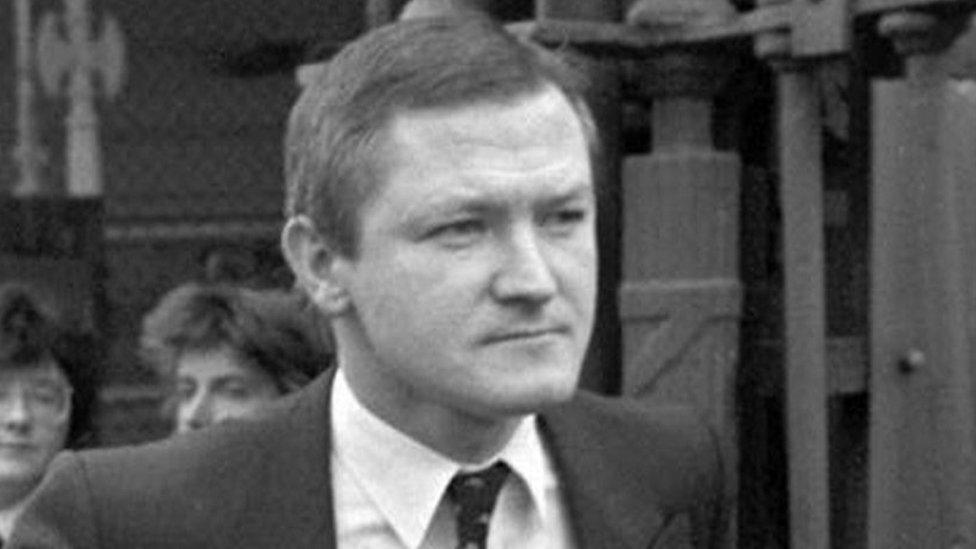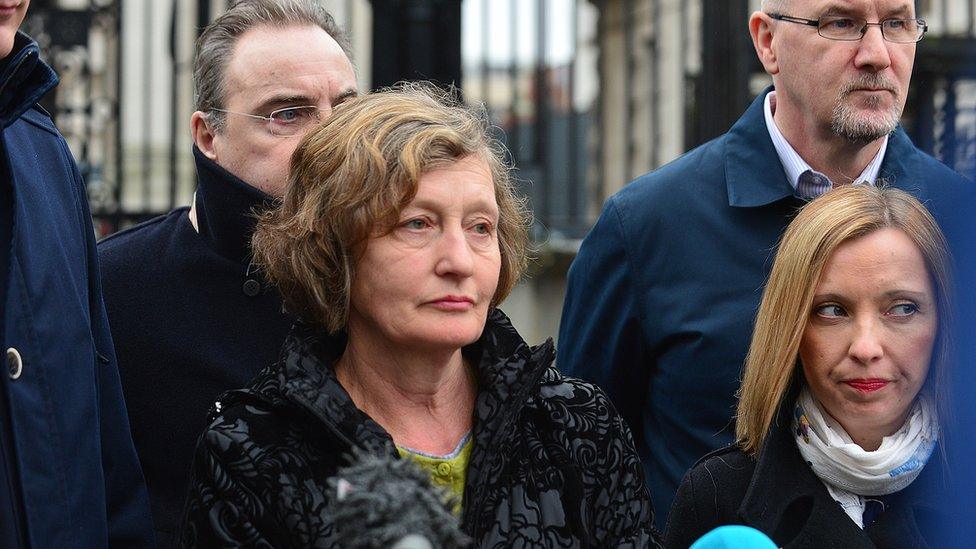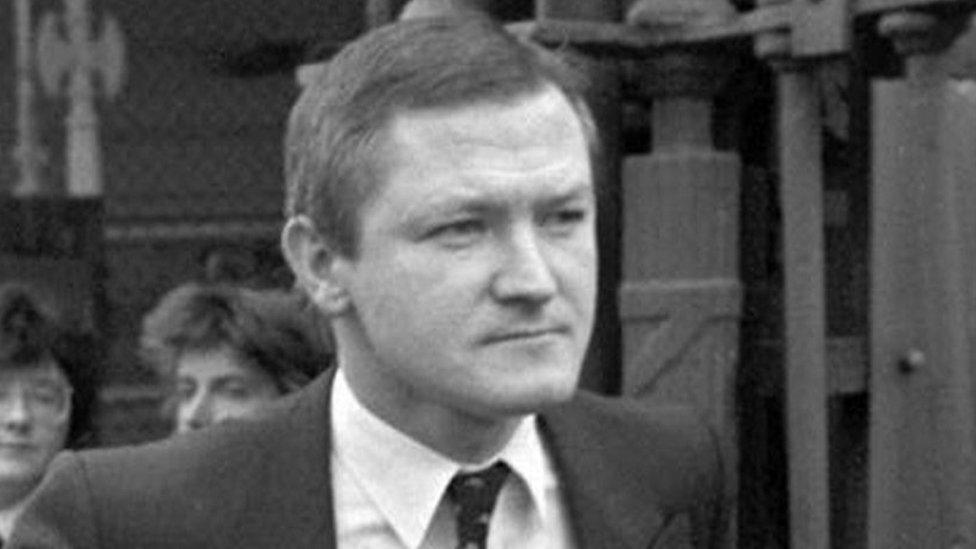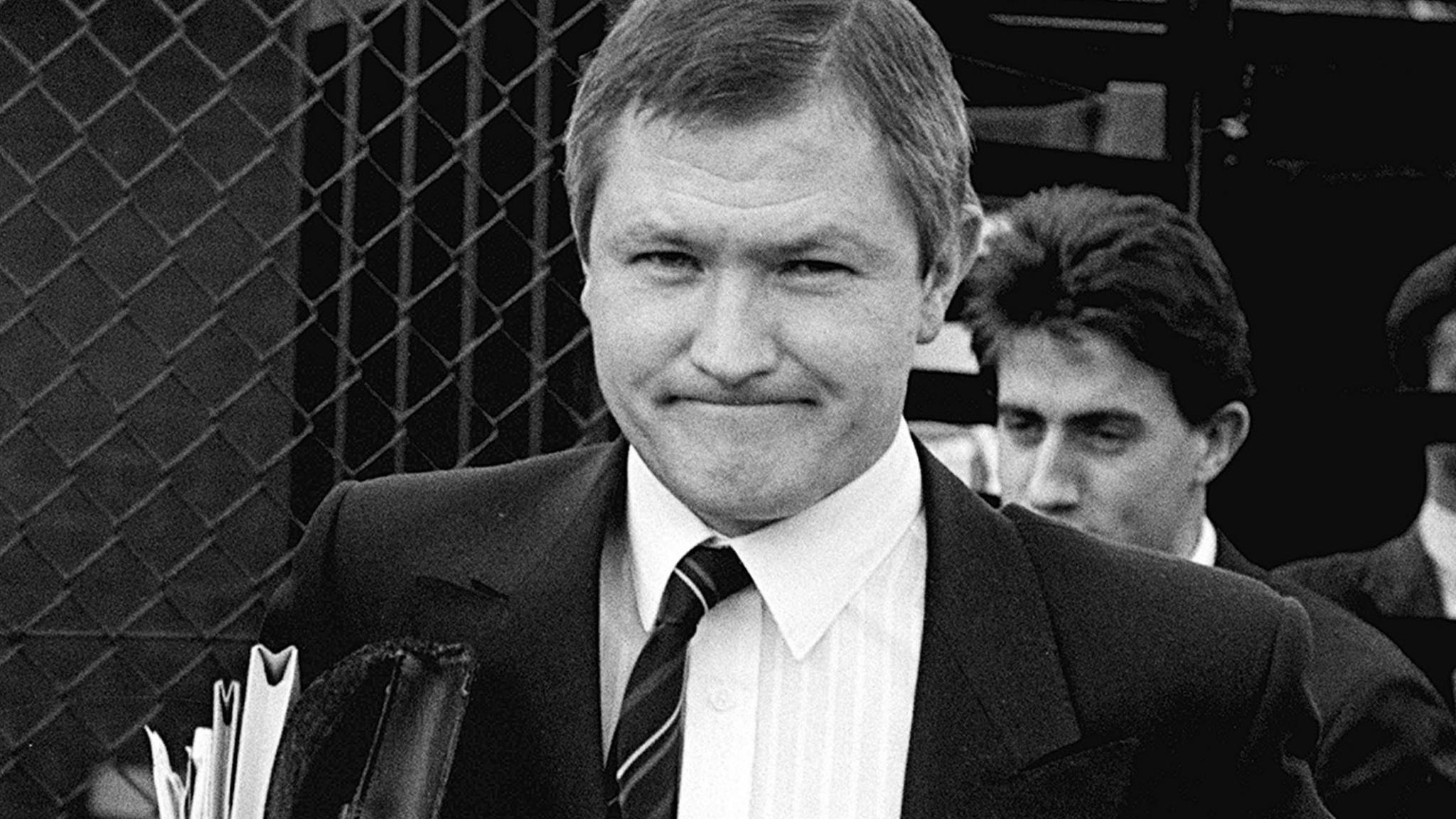Pat Finucane: Supreme Court urged to quash inquiry decision
- Published

Pat Finucane, a 39-year-old Belfast solicitor, was shot dead in front of his wife and children in 1989
The UK's highest court has been told it has a constitutional duty to protect the rule of law by quashing a decision not to hold a public inquiry into the murder of solicitor Pat Finucane.
He was shot by loyalist paramilitaries in front of his young family in 1989.
The Supreme Court was told he was a victim of "a policy of systematic extra-judicial execution".
Geraldine Finucane, his widow, is attempting to overturn a decision not to hold a public inquiry.
The decision was made by former Prime Minister David Cameron.
A family lawyer described the killing as an attack "on the constitution and the legal system in particular".
Barry MacDonald QC told the five Supreme Court judges that the government had reneged on a promise to the family to hold an inquiry.

Geraldine Finucane has been involved in a long-running legal battle
Instead, David Cameron ordered a review of the case by Sir Desmond de Silva QC.
In December 2012, a report by Sir Desmond said he had found "shocking" levels of collusion involving the army, police and MI5.
It said the state had facilitated the killing and made relentless efforts to stop the killers being caught.
But Mr Finucane's family said the report left many questions unanswered and argued that an inquiry is the only way to establish the truth about what happened, and to hold those responsible to account.
Pat Finucane was a high-profile solicitor who lived and worked in Belfast, and he had represented clients, including convicted members of the Irish Republican Army (IRA).
The 39-year-old was murdered at his family home in Belfast.
'Paramilitary serial killers'
Geraldine Finucane, her two sons and daughter were in the court in London for the hearing.
They heard Barry MacDonald QC tell the judges the case was about the responsibility of the judiciary in the face of what he called a direct attack on the legal system.
"The available evidence suggests that the executive agencies of the state, responsible for law and order, devised and operated a policy of systematic extra-judicial execution that was as cynical and sinister as can be imagined," he said.
"Loyalist terrorist organisations were infiltrated, resourced and manipulated in order to murder individuals identified by the Army and the police as suitable for assassination.
"In other words, state-sponsored terrorism, murder by proxy whereby the Army and the police engaged in terrorism through the agency of loyalist paramilitary serial killers."
The lawyer said the question facing the court was whether the decision not to hold an inquiry could ever be held compatible with the rule of law or Article 2 of the European Convention on Human Rights.
The government had argued that the courts were not "entitled to interfere" with the decision not to hold a public inquiry as it involved such complex issues of political policy.
However, the court was told it should reject that argument.
"We say this is exactly the kind of case where the court needs to interfere in a hard-edged way in discharge of its constitutional obligation to protect the rule of law and the integrity of the legal system, not to mention Mrs Finucane's human rights," Mr MacDonald added.
In February last year the Court of Appeal in Belfast dismissed an appeal against the decision not to hold a public inquiry, ruling that the government had acted lawfully.
The hearing will continue on Wednesday.
- Published27 July 2017

- Published21 February 2017

- Published12 December 2012
